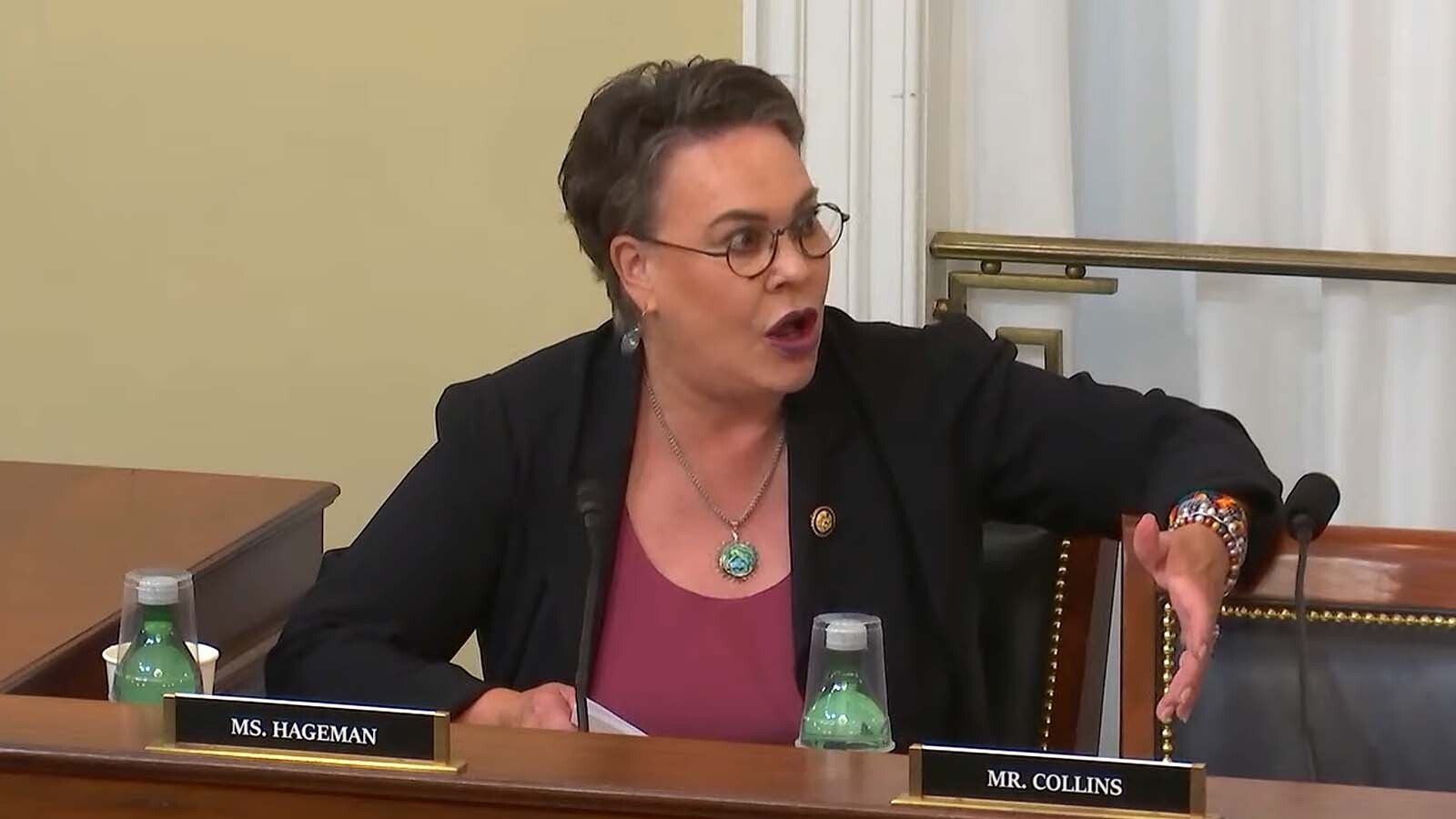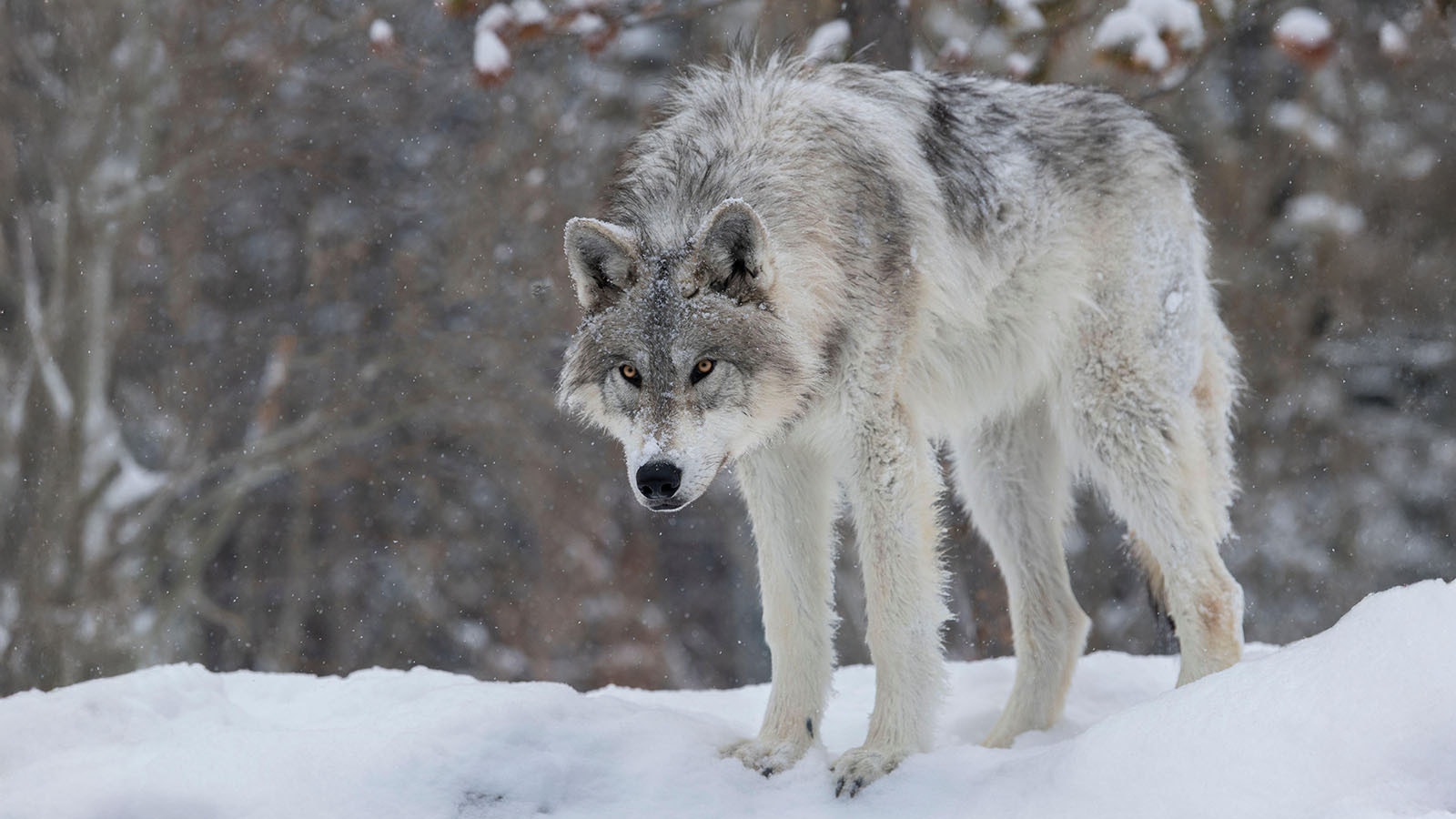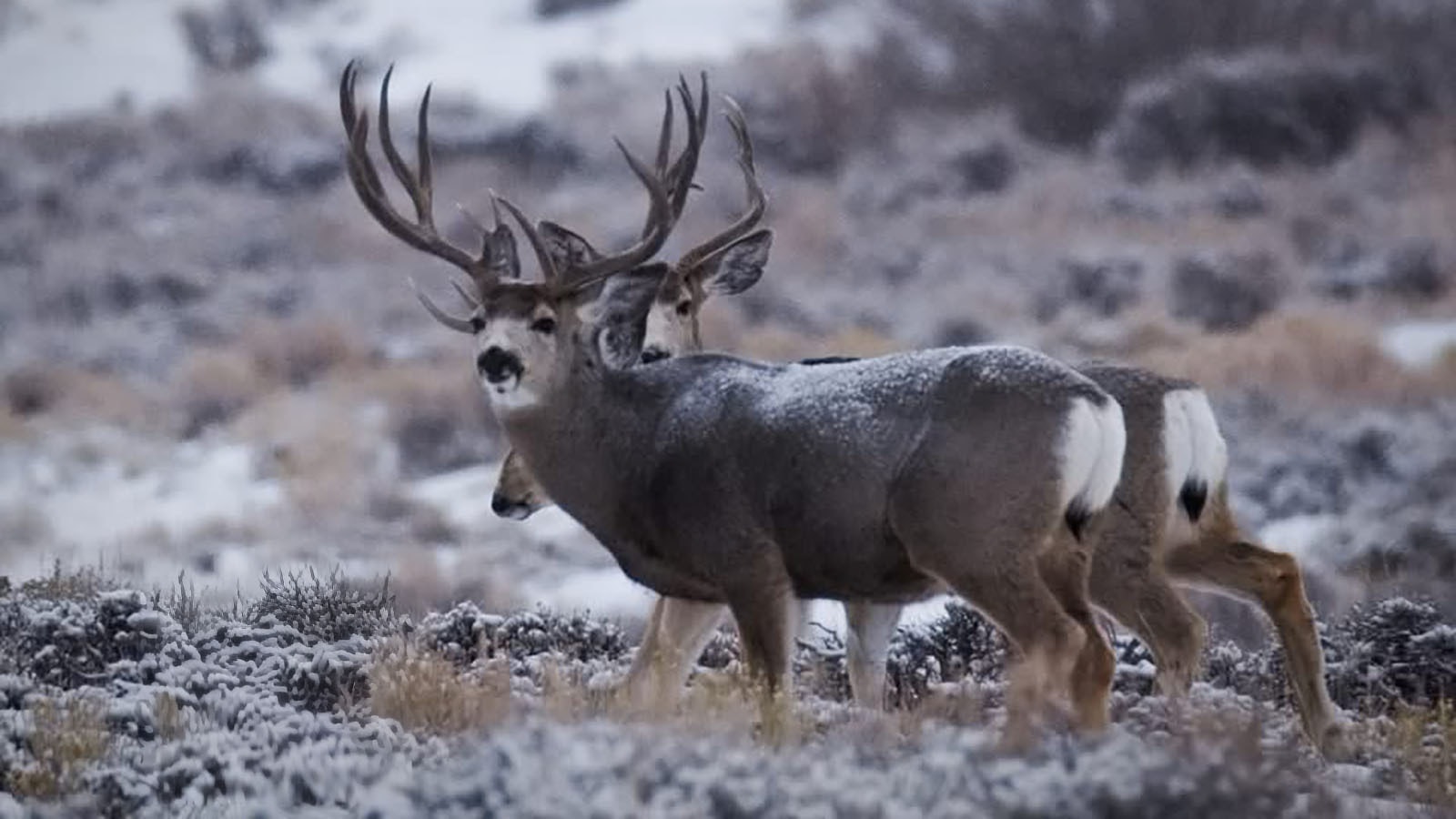WASHINGTON, D.C. — A U.S. House committee advanced legislation Tuesday sponsored by U.S. Rep. Harriet Hageman, R-Wyoming, to remove Yellowstone-area grizzly bears from the Endangered Species Act list.
The U.S. House Natural Resources Committee voted 20-19 along party lines for the Grizzly Bear State Management Act. The bill now goes to the House floor.
Hageman, a member of the panel, said Tuesday the Greater Yellowstone Ecosystem grizzly population has fully recovered and now numbers about 1,100.
If enacted into law, Hageman’s bill would reopen the possibility of grizzly hunts managed by state wildlife officials.
Such hunts were set for Wyoming and Idaho after the U.S. Fish & Wildlife Service in President Donald Trump’s first term took the animal off the list.
But a federal judge in Montana blocked the 2017 delisting, faulting the data the agency used to justify it.
The ruling by U.S. District Judge Dana Christensen halted the hunts, which were set to take place in the fall of 2018 under strict rules that included quotas.
No Judicial Review
Grizzly bears in the Lower 48 were put on the ESA list in 1975. They were categorized as “threatened,” a status of protection that remains today.
Hageman’s bill would not only take the GYE grizzly population back off the list by restoring the Fish & Wildlife rule made in 2017, but it would prevent judicial review as well.
The Endangered Species Act has been abused by “radical environmental organizations and activist judges,” Hageman said at Tuesday’s session.
The top Democrat on the Natural Resources panel, U.S. Rep. Jared Huffman of California, said the language in Hageman’s bill barring judicial review sets a bad precedent.
“Scientists, tribes and industries also use the courts” just as environmental groups do, Huffman said.
Ahead of Tuesday’s vote, Democrats offered three amendments, including one to cut out the ban on judicial review. All were shot down on party-line votes.
On the bill itself, four Republicans did not vote. All of the Democrats on the panel cast votes against the measure.
‘Poster Child’
Hageman said the animal’s removal is long overdue in accordance with the Endangered Species Act, based on its recovery.
She said there is a pattern of animals remaining on the list beyond what their populations warrant, and the grizzly is the best example.
“The grizzly is in fact the poster child for how the ESA has failed,” Hageman said, though she added some animals rightfully remain on the list, like the California condor.
Hageman credited the Wyoming Game and Fish Department, not the U.S. Fish & Wildlife Service, with the grizzly’s recovery in Wyoming.
She said the department has nine employees dedicated to grizzly management, and no one in the federal agency matches their expertise. Wyoming’s program involves research and monitoring, conflict management, education and outreach.
Nesvik Still Waiting
Echoing common complaints by Republican U.S. Sens. John Barrasso and Cynthia Lummis of Wyoming, Hageman said the bears pose an increasing threat to people and livestock.
Lummis, a member of the Senate Environment & Public Works Committee, recently complained that environmentalists only see the grizzly as “charismatic megafauna.”
She made the comment as that committee was weighing the nomination of Brian Nesvik, a former Wyoming Game and Fish director, to head up Fish & Wildlife.
The panel approved his nomination in March, but the full Senate has yet to vote.
Sacred Animal To Many
Huffman, a California Democrat on the House panel with Hageman, raised objections beyond the banning of court review of the rule, as Hageman’s bill would do.
“Wiping out predators throws the entire ecosystem out of balance,” Huffman said Tuesday.
He and other Democrats also said delisting is an affront to Native Americans, many of whom view the grizzly as sacred.
The animal has “profound spiritual and cultural significance” for them, said U.S. Rep. Val Hoyle, D-Oregon.
Hageman noted that Wyoming’s management plan for the bear involves tribal consultation.
Democrats said there is not enough of it, and Hageman said there is.
“I have a strong regard for tribal consultation,” Hageman added.

Ammo & Tackle
Hageman’s bill was one of 12 that the House Natural Resources panel sent to the floor Tuesday.
Ten of those bills had bipartisan support and moved as a package under unanimous consent. But like Hageman’s bill, a measure on hunting and fishing gear was contentious.
The Protecting Access for Hunters and Anglers Act by U.S. Rep. Rob Wittman, R-Virginia, has to do with ammo and tackle containing lead.
The bill would bar Fish & Wildlife, the Bureau of Land Management and the U.S. Forest Service from prohibiting or regulating the use of lead ammunition or tackle on federal land or water, leaving it up to states.
The bill makes exceptions for specified existing regulations, and where those agencies determine that a decline in wildlife population at a specific federal land or water is primarily caused by the use of lead in ammunition or tackle.
Those exceptions were not enough to satisfy most Democrats’ concerns about contamination. The vote to advance it was 23-17.
Sean Barry can be reached at sean@cowboystatedaily.com.





